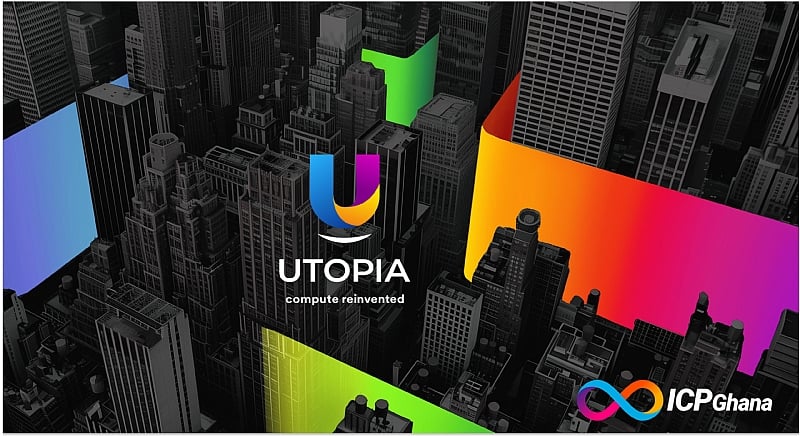As Ghana prepares for its forthcoming presidential election, various candidates are presenting their visions for the nation’s advancement, with Nana Kwame Bediako’s proposal for a national Web3 platform gaining particular attention. This ambitious initiative advocates for the migration of all statutory and national data onto a blockchain, aiming to combat corruption, foster transparency, and modernize public administration. Central to this transformative vision is the Internet Computer Protocol (ICP), a platform developed by the DFINITY Foundation that supports large-scale, decentralized applications and services. ICP Ghana, the local entity promoting the Internet Computer, asserts that this technology is foundational for effectively implementing Ghana’s national blockchain initiative.
The potential of blockchain technology to enhance governance is considerable. By providing a decentralized and immutable ledger, blockchain technology ensures that every transaction and data entry is securely recorded, making it tamper-proof. For Ghana, the adoption of an ICP-managed national blockchain means that all government actions—from budgetary decisions to the issuance of licenses—could be monitored and verified in real-time. This transparency would not only allow citizens and civil society to audit government operations but would also decrease opportunities for corrupt practices by enhancing accountability.
The Internet Computer (ICP) stands as a uniquely suitable platform for realizing Bediako’s vision of a national Web3 initiative. Firstly, ICP enables genuine decentralization by storing applications and data on the blockchain rather than relying on centralized servers. This ensures data integrity, crucial for the management of sensitive governmental information. Furthermore, ICP operates smart contracts at internet speeds, facilitating the efficient delivery of public services without delays. Its scalability allows the handling of millions of users and extensive data while maintaining high performance, essential for a national framework. Another significant advantage is the cost efficiency that ICP offers compared to traditional IT infrastructures, making it appealing for governmental entities focused on optimizing expenditures while improving services.
Additionally, the ICP platform’s security features are vital for safeguarding national data. With advanced cryptographic methods and a decentralized architecture, it significantly reduces risks of unauthorized access. This robust security is essential for maintaining trust in government operations. Its design also allows for seamless integration with existing government IT systems, thus minimizing disruption during the transition to a blockchain framework. The feature of autonomous governance through self-executing smart contracts could further automate essential government processes, such as issuing licenses and approving budgets, reducing human interference and the potential for corruption.
Integral to the ICP ecosystem is Utopia, a revolutionary cloud service tailored for enterprises and governments, providing a secure, serverless infrastructure. Utopia not only ensures unparalleled data security but is also designed to help national entities reinforce their sovereignty in the digital sphere. By supporting advanced technologies such as artificial intelligence (AI) within a secure environment, Utopia guarantees that AI models operate on unaltered data, mitigating risks associated with data manipulation. This approach enables countries like Ghana to manage their data autonomously, thus diminishing dependence on external technology providers and boosting national digital sovereignty.
The socio-economic implications of integrating ICP for national data management in Ghana are considerable. Economically, this advance would reduce administrative expenditures and boost efficiency, positioning Ghana as a leader in digital governance within Africa. On a societal level, enhanced transparency and service delivery through blockchain-based governance could help rebuild citizen trust in governmental processes and elevate data privacy standards. As such, the adoption of the Internet Computer Protocol could represent a pivotal moment for Ghana on both economic and social fronts.
In conclusion, Nana Kwame Bediako’s proposal for a national Web3 platform marks a significant leap toward modern governance in Ghana. By leveraging the Internet Computer Protocol as the core of this vision, the nation could transition to a framework characterized by scalability, efficiency, and enhanced transparency. The call for digital transformation echoes loudly as Ghana stands on the brink of an era that promises not only improved governance but also increased national prosperity. With ICP as a cornerstone, Ghana has the opportunity to lead the African continent into a new digital future, fostering a government that is transparent and accountable in the 21st century.














